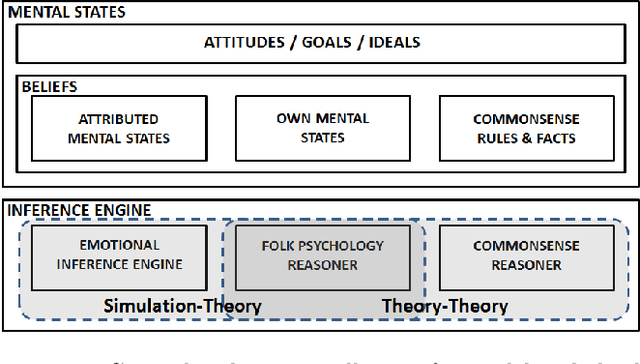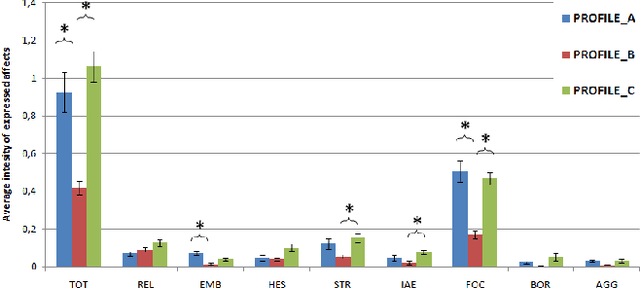Marwen Belkaid
Emotion in Future Intelligent Machines
Sep 30, 2020



Abstract:Over the past decades, research in cognitive and affective neuroscience has emphasized that emotion is crucial for human intelligence and in fact inseparable from cognition. Concurrently, there has been a significantly growing interest in simulating and modeling emotion in robots and artificial agents. Yet, existing models of emotion and their integration in cognitive architectures remain quite limited and frequently disconnected from neuroscientific evidence. We argue that a stronger integration of emotion in robot models is critical for the design of intelligent machines capable of tackling real world problems. Drawing from current neuroscientific knowledge, we provide a set of guidelines for future research in artificial emotion and intelligent machines more generally.
A logical model of Theory of Mind for virtual agents in the context of job interview simulation
Feb 20, 2014

Abstract:Job interview simulation with a virtual agents aims at improving people's social skills and supporting professional inclusion. In such simulators, the virtual agent must be capable of representing and reasoning about the user's mental state based on social cues that inform the system about his/her affects and social attitude. In this paper, we propose a formal model of Theory of Mind (ToM) for virtual agent in the context of human-agent interaction that focuses on the affective dimension. It relies on a hybrid ToM that combines the two major paradigms of the domain. Our framework is based on modal logic and inference rules about the mental states, emotions and social relations of both actors. Finally, we present preliminary results regarding the impact of such a model on natural interaction in the context of job interviews simulation.
 Add to Chrome
Add to Chrome Add to Firefox
Add to Firefox Add to Edge
Add to Edge